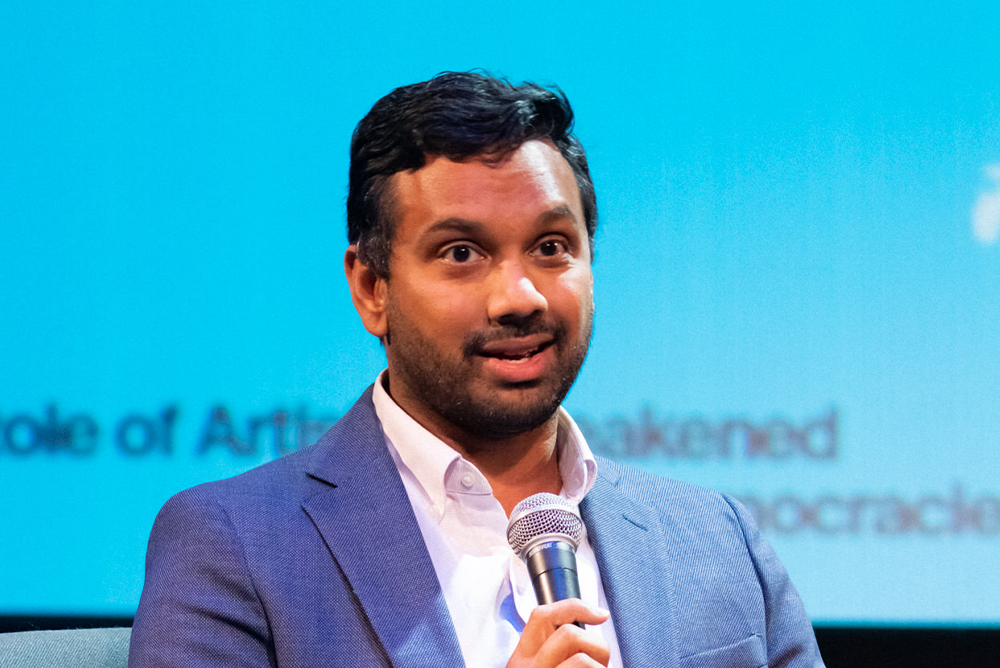
Photo by Aaron Perez.
Snehal Desai is the Center Theatre Group’s artistic director. He previously served as the producing artistic director of East West Players. Before taking part in the Zócalo, Thomas Mann House, and L.A. Review of Books program “How Should Arts Institutions Navigate the Culture Wars?”—part of the two-day conference “Arts in Times of Crises”—Desai joined us in the green room to talk about his one-man show, same-sex intimacy in India, and what he misses about Atlanta.
What is the earliest creative act that you remember?
To me, the earliest creative act is when you are able to read and you start reading out loud. I think in second grade I was in a play, and that was the first time I was speaking in front of others. And what was interesting was I tended to be very shy but as soon as I was able to find a character, I was able to speak more comfortably.
You’ve decided to prepare a Thanksgiving meal potluck. Who is your dream dinner guest, dead or alive?
Gandhi. I’ve been thinking a lot about, in a world that’s increasingly violent, this adherence to how you can combat that, but also how you leverage all of the tools at your disposal, from spoken word to writing. And how, at a time when there wasn’t social media, he was able to galvanize a whole country.
Tell me about the inspiration behind your solo show Finding Ways to Prove You’re NOT an Al-Qaeda Terrorist When You’re Brown (and Other Stories of the Indian).
I started it while I was in grad school. A lot of it was this idea of how, post 9/11, when I walked into a room, what people first saw was my Brownness. And any of the other parts of my identity didn’t matter. It didn’t matter about my sexual orientation or how gay I was at the airport. And for me, it was circumventing that identity and then taking this trip to India, where I also had this complicated relationship with my sexual orientation. They were open with their sexuality—you see men walking down the street, holding hands, or leaning on each other’s shoulders in an intimate way. That’s not sexual, but it’s about an intimacy that we can’t have here. Because it still feels so foreign.
And then I also was grappling with this idea of community and culture that I had lost touch of. We’re in a capitalist world where money is the thing that is going to get you to happiness. And then you go to India, and you see a kite festival and you’re like, oh my god, it’s so simple. It’s just string and paper in the air. And everyone turns out, and it’s a moment. And I think often about what we miss being here versus there.
You lived in Atlanta for many years. What’s something you miss?
I definitely miss the food. The Southern cooking is really, really good. And because I came of age as an artist there, it feels like that’s my artistic community. I love so many of those artists there, and they gave me opportunities that allowed me to take risks. I really appreciate that.
We’re going to play a game. Which Broadway musical—Wicked, Hamilton, and The Lion King—would you Bed, Behead, and Bewed?
Bewed The Lion King.
Bed Hamilton.
Behead Wicked.



